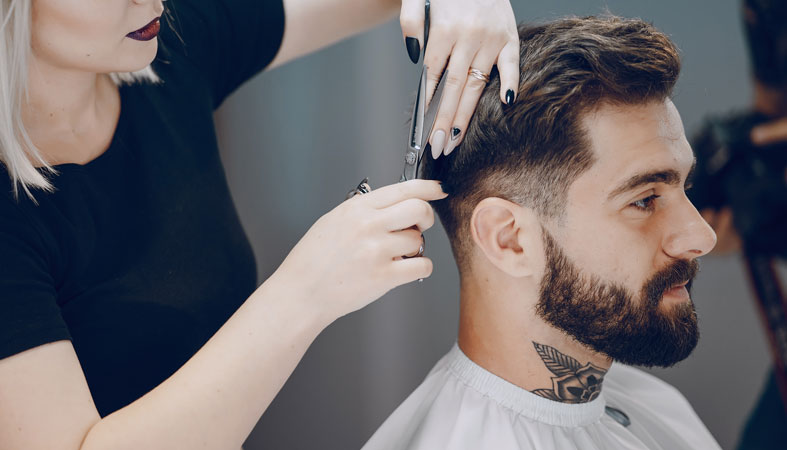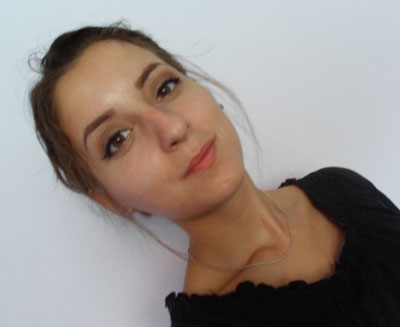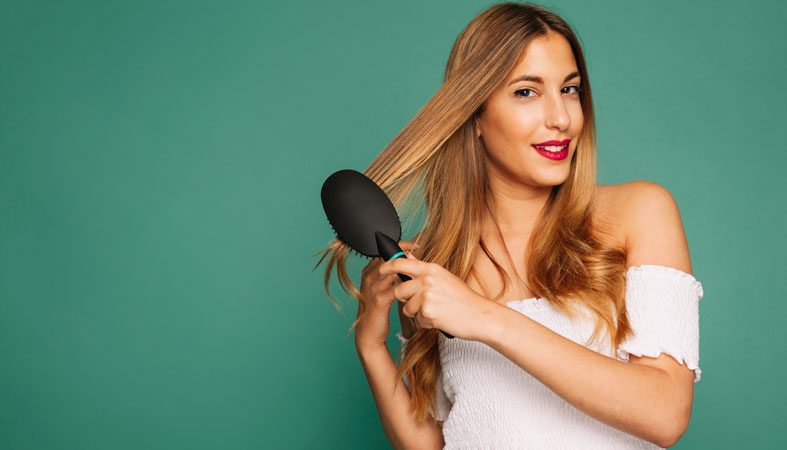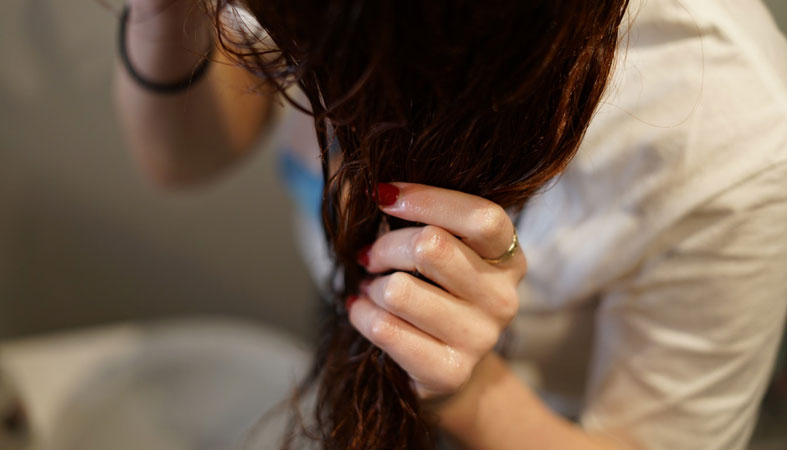Do you ever get the feeling that your hair went out for a wild night of partying and left you behind? If you’ve had the pleasure of waking up with a hairstyle that looks like it’s been on a crazy adventure, you are the unfortunate victim of bed head.
The key to surviving this condition is to prevent it before it starts. In this article, I share helpful tips on how to avoid bed head. These will work whether you’re a man or woman, whether you have a curly or straight style, or if you have long locks or a shorter ‘do.
What is Bed Head?
It is a tragic condition where your hair goes in about a million directions and looks downright horrible. It’s as if you stuck your finger in a light socket. Or, little trolls snuck into your bedroom and decided to build a fort on your pillow. You get the idea.
While it’s not physically fatal, it can kill any chances you have of landing a job, being in a relationship or finding happiness.
Okay, that might be a slight exaggeration, but it’s still traumatic and be a total day ruiner.
How Can You Prevent It?
Sleep with Dry Hair
A surefire way to catch bed head is sleeping with wet hair. Since you’re putting weight on different areas of your scalp while you sleep, a wet mane is going to dry at all kinds of funky angles. It can also lead to icky stuff on your pillow like mold and mildew. Instead, make sure you’re all dry before you go to sleep.
Brush Hair Before Sleeping
One of the best things you can to prevent unruly tresses in the morning is to brush it the night before. Brushing helps detangle, it distributes moisture, removes excess product, and sets you up for a successful morning. Think about it: if you go to bed with messy hair, the chances of waking up with it looking unkempt are about 100 percent.
Use a Silk Bedding
Silk bedding is a luxury, but it’s so worth it, especially for your tresses. Other materials will cause friction and damage, but silk is smooth and gentle.
Find Out More: Best Silk Sheets
Moisturize Hair Ends
One thing that took me forever to realize with my bed head is that it was the ends of my hair that were causing the issue. Every morning when I woke up, I would notice that the top of my hairstyle looked normal, but just below my ears, everything was dry, frizzy and straggly. Even a haircut didn’t seem to solve the problem.
I discovered that moisturizing my ends each night, combined with some of these other hacks, really helped keep everything under control.
Use a Leave-In Product
Whether it’s just your ends that have gone rogue, or your entire army of locks, you’ll probably benefit from a leave-in product. A light conditioner that you let stay in your hair all night will help tame those stubborn locks.
Use a Humidifier
It may seem counterintuitive, but having moisture in the air is good for your hairstyle. Running a humidifier will help keep your bedroom at a constant and ideal humidity level, which is excellent for your hair, skin, and sinuses.
Other Easy Hacks
For Short Hair
Use a Bandana
Wrap a bandana around your head to hold everything in place. Any type will do, but I prefer silk. If a bandana isn’t strong enough to hold make your hair look good enough, you can also wrap a cotton t-shirt over the bandana to keep it all together.
Wet Hair in the Morning
Wetting your scalp or ends in the morning is like pressing the reset button. If it’s standing straight up or moving in all kinds of directions, wetting it down allows you to get things under control and. As it dries, it’ll be much more likely to hold a shape similar to when you got it wet.
Apply a Pomade or Mousse
If you’ve found that despite your best efforts the bed head monster has won, you can apply styling products like pomade or mousse to tame your hairstyle or add texture that you control. If you’re a guy trying to prevent bed head, this tip is particularly helpful.
Layered Style Haircut
Having a haircut with layers is a great preventive measure. This style can be magical in a couple of ways:
- Layered cuts tend to give a naturally tousled look, which can be sexy whether you’re male or female.
- Layers, if done correctly, firmly put the force of gravity on your side. The layers will naturally fall at an angle that looks beautiful with little to no maintenance.

For Long Hair
Pin it Down
Bobby pins aren’t just for grandma. If your long longs are a tousled mess in the morning, you can use these to pin it in small sections to the top of your head. You can even make ringlet shapes, and it’ll give you extra volume and curl when you wake up.
Using this strategy cuts your time to get ready in the morning and can even help you go longer between washings.
Pull it Up
This trick is my go-to because it only takes a second and it’s very effective. All you have to do is pull your hair into a bun or a top knot. If it is long enough to tuck the ends into the bun, you can avoid the awkward crease that comes from having an elastic tie.
Wrap it Up
For people with longer locks, the key to prevention is control. By wrapping your tresses tightly with something like a t-shirt, you can stop wild pieces from poking out and sticking up.
Conclusion
Remember, you are in control. Whether you want to hit the snooze button an extra time (or two), or you want a few more minutes to make sure your makeup is just right (it’s all about the contouring), not having to think about a wild hairstyle is a surefire way to improve your morning routine. And you know what they say; if you win the morning, win the day!
Sources and References:
- How to Beat Bedhead – sleep.org
- How to Fix Embarrassing Bed Head Fast – gq.com

Olivera Jancikin
Content Writer
About Author
Olivera is a content writer for Sleep Advisor and is enthusiastic about sleep. She firmly believes in the benefits of daytime naps on top of getting a full 8-hour sleep at night.
Combination Sleeper


